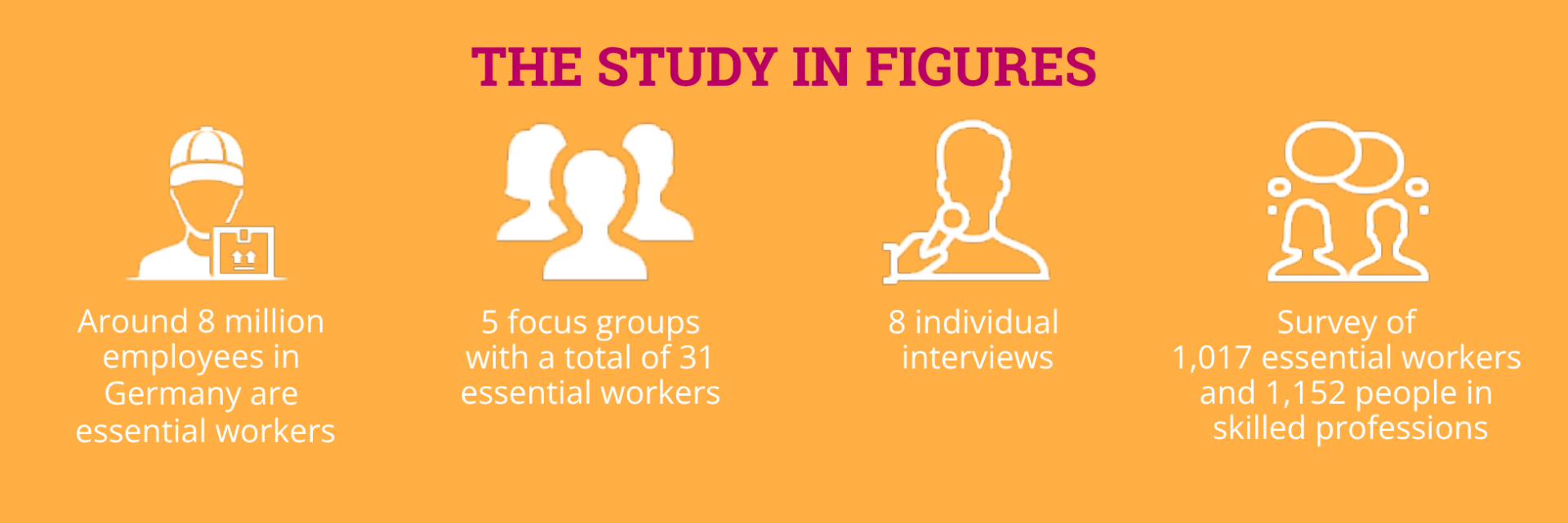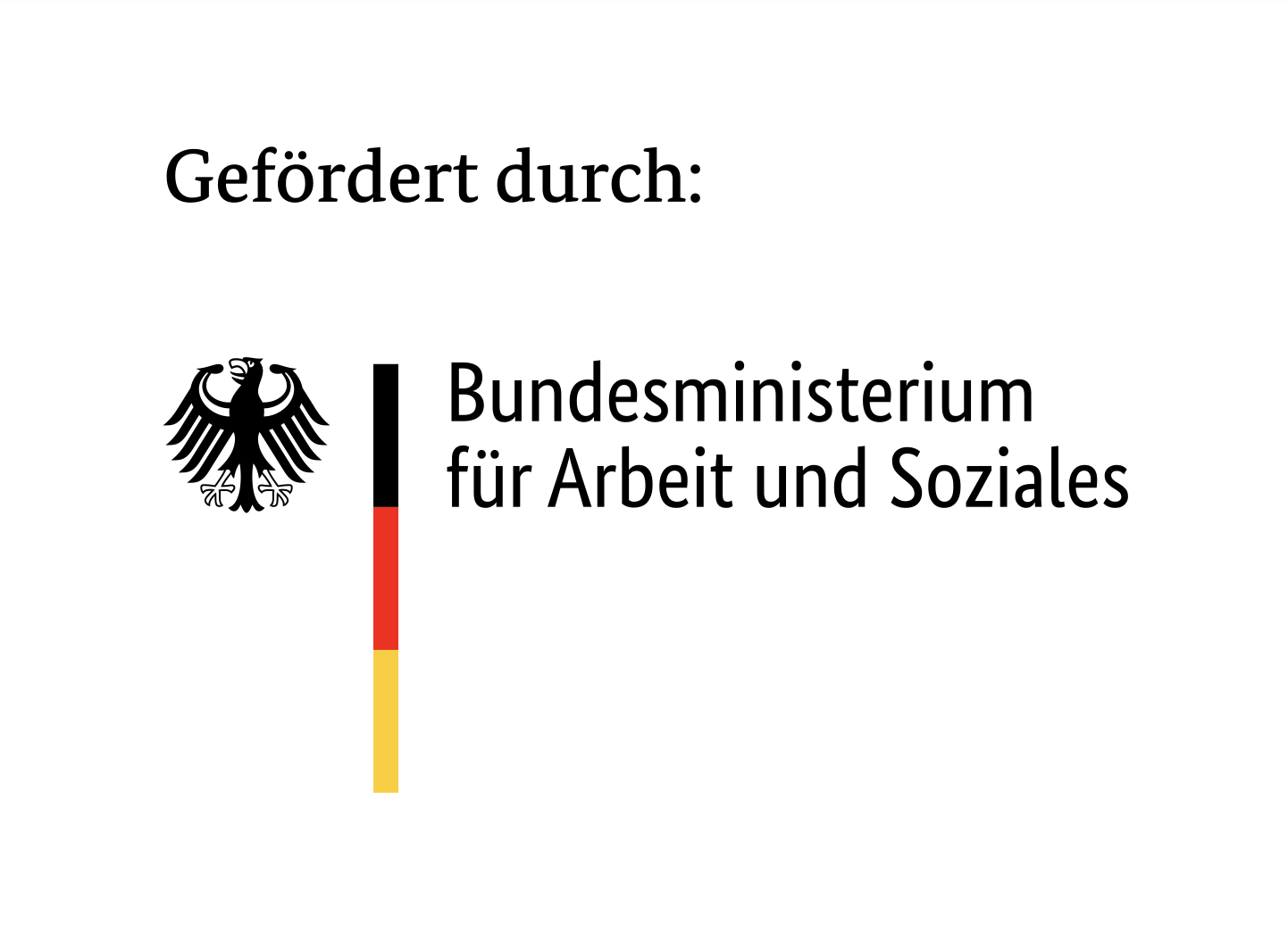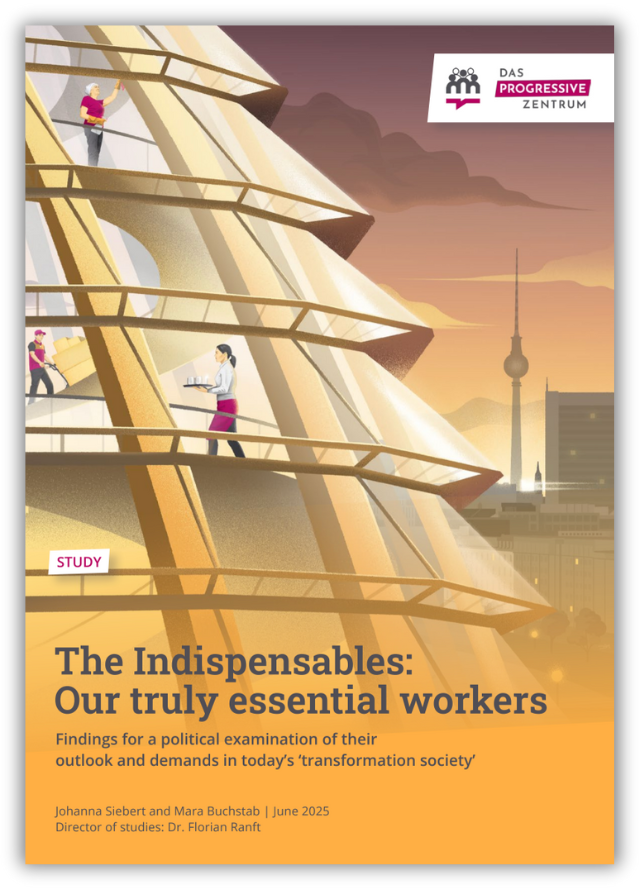They clean offices, deliver meals, fit car parts or stack supermarket shelves. People whose work requires no formal qualifications yet who lay the foundations of our societies. At the same time, these workers in unskilled jobs (whom we shall
call foundation workers) are comprehensively ignored in key reform debates. Our study seeks to change this. It attempts to assess foundation work in comparison with skilled jobs and poses the question: What are the working and living conditions of foundation workers, and how do they view their own work and society itself?
Given a changing world of work uprooted by the ecological and digital transformation underway, our study also examines the democratic relevance of work. It asks: How do insecure working conditions in foundation work but also on the entire labour market impact people’s trust in democracy and openness towards transformational processes?
To answer these questions, we adopted a multimethod design for our research, made up of qualitative interviews, focus groups and an opinion poll. The results show: Foundation workers are disadvantaged in their place on the labour market. Compared with people in skilled professions, they have fewer formal resources for adapting to and navigating a transitioning world of work. At the same time, their interests are rarely taken up in the world of politics and society. Unsurprisingly, their trust in political actors and democratic institutions is low. Yet, for our democracy, foundation workers are indispensable thrice over: socially, economically, and politically.

Teaser for the film
Supported by


Authors
Our Energy Transition? – How local Participation can shape Sustainability Transformations
The Disregarded

Contact
Study Director
Press Contact

We develop and debate progressive ideas and bring together leading actors who turn thoughts into action. Our think tank’s goal: making the just transformation a reality. ▸ Learn more





